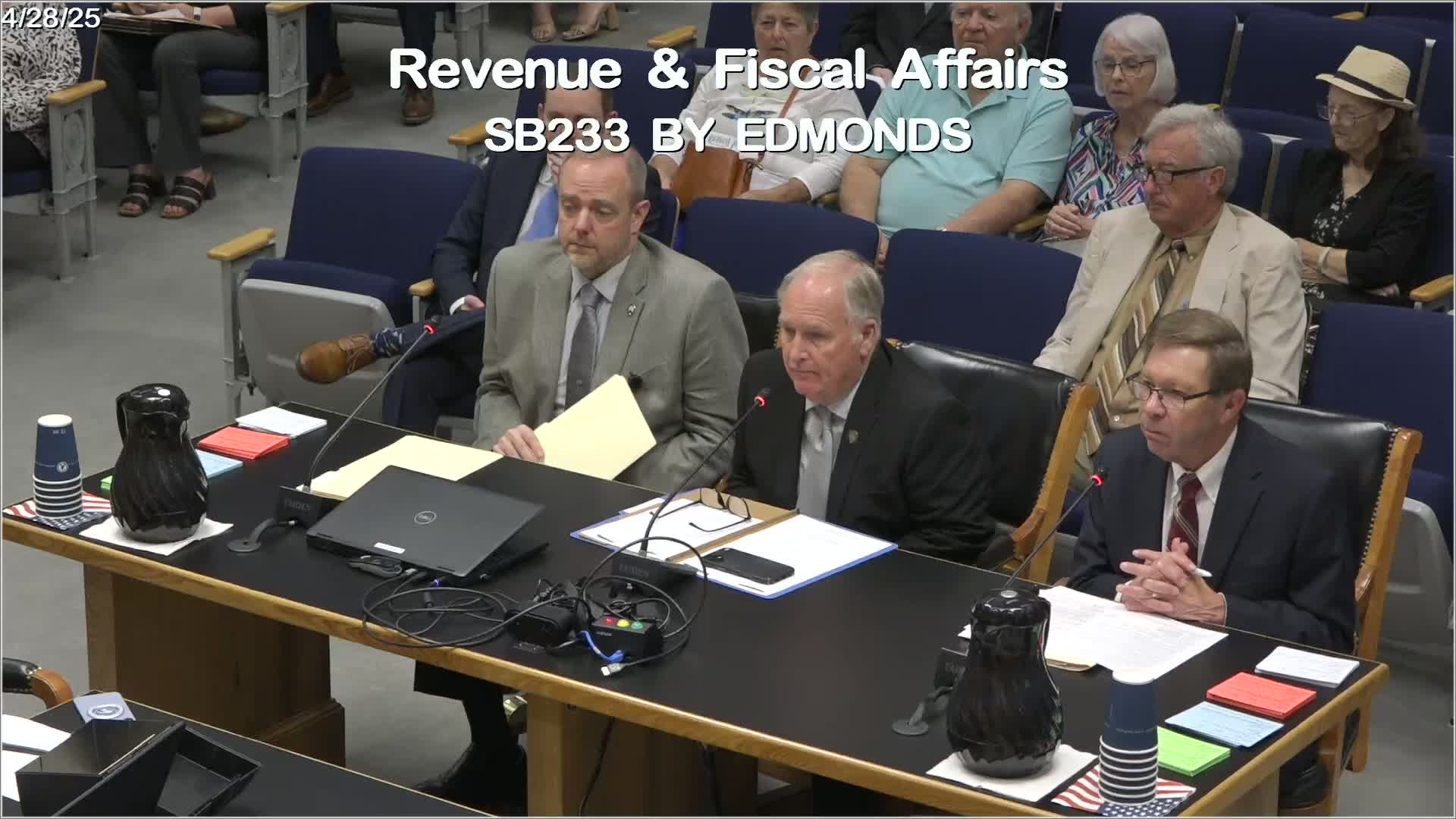Senate Committee approves $5M cap for new program amid ongoing tax system reforms
April 28, 2025 | 2025 Legislature LA, Louisiana
This article was created by AI summarizing key points discussed. AI makes mistakes, so for full details and context, please refer to the video of the full meeting. Please report any errors so we can fix them. Report an error »

The Senate Revenue and Fiscal Committee of the Louisiana Legislature convened on April 28, 2025, to discuss key legislative measures, including proposed amendments to existing bills and the introduction of new initiatives aimed at fiscal responsibility and economic incentives.
The meeting began with a discussion on a bill that seeks to establish a cap on financial incentives. Committee members expressed a consensus on the necessity of implementing a cap, with suggestions around a $5 million limit to provide a buffer for future financial commitments. Senator Jenkins voiced support for the bill, emphasizing the importance of moving it forward while acknowledging the complexities involved in determining the appropriate cap. He indicated a willingness to collaborate on finding a suitable figure.
Senator Bowie raised concerns regarding the financial implications of the proposed increases, questioning the criteria used to determine the substantial increases of up to 400%. He highlighted the need for a thorough evaluation of how these changes would affect state revenue and the taxpayers. The committee agreed to consider these concerns as they moved forward.
As the discussion progressed, the committee prepared to adopt an amendment to establish the proposed cap. Staff members were tasked with drafting the amendment, which was ultimately adopted in concept, allowing for technical adjustments as needed. The committee then voted to report the amended bill without objection.
Following this, Senator Miller introduced Senate Bill 55, which aims to refine the property tax collection system in Louisiana. This bill is a continuation of efforts initiated the previous year to transition from a tax sale certificate system to a lien system. The legislation seeks to clarify and modify existing laws based on recommendations from the Law Institute, which is currently reviewing the relevant statutes. Senator Miller assured the committee that the intent of the bill is not to alter the substance of previous legislation but to correct inconsistencies and enhance clarity.
The meeting concluded with a commitment to further evaluate the proposed measures and their implications for Louisiana's fiscal landscape. The committee's next steps will involve continued discussions and refinements to ensure that the legislation aligns with the state's economic goals while safeguarding taxpayer interests.
The meeting began with a discussion on a bill that seeks to establish a cap on financial incentives. Committee members expressed a consensus on the necessity of implementing a cap, with suggestions around a $5 million limit to provide a buffer for future financial commitments. Senator Jenkins voiced support for the bill, emphasizing the importance of moving it forward while acknowledging the complexities involved in determining the appropriate cap. He indicated a willingness to collaborate on finding a suitable figure.
Senator Bowie raised concerns regarding the financial implications of the proposed increases, questioning the criteria used to determine the substantial increases of up to 400%. He highlighted the need for a thorough evaluation of how these changes would affect state revenue and the taxpayers. The committee agreed to consider these concerns as they moved forward.
As the discussion progressed, the committee prepared to adopt an amendment to establish the proposed cap. Staff members were tasked with drafting the amendment, which was ultimately adopted in concept, allowing for technical adjustments as needed. The committee then voted to report the amended bill without objection.
Following this, Senator Miller introduced Senate Bill 55, which aims to refine the property tax collection system in Louisiana. This bill is a continuation of efforts initiated the previous year to transition from a tax sale certificate system to a lien system. The legislation seeks to clarify and modify existing laws based on recommendations from the Law Institute, which is currently reviewing the relevant statutes. Senator Miller assured the committee that the intent of the bill is not to alter the substance of previous legislation but to correct inconsistencies and enhance clarity.
The meeting concluded with a commitment to further evaluate the proposed measures and their implications for Louisiana's fiscal landscape. The committee's next steps will involve continued discussions and refinements to ensure that the legislation aligns with the state's economic goals while safeguarding taxpayer interests.
View full meeting
This article is based on a recent meeting—watch the full video and explore the complete transcript for deeper insights into the discussion.
View full meeting
